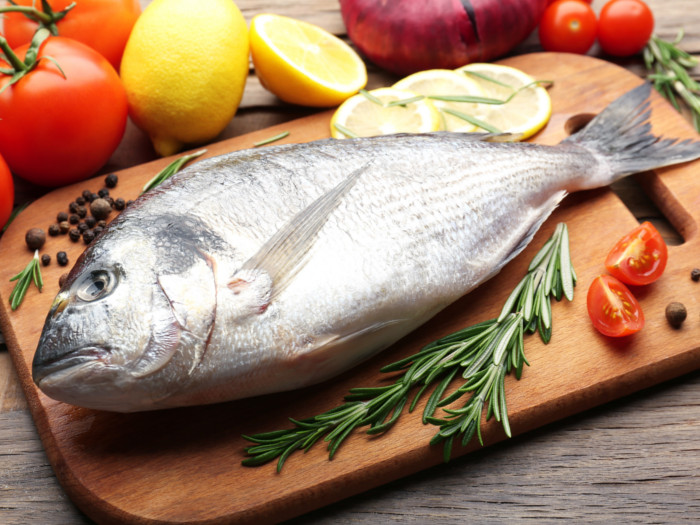Many people worry about eating raw fish, but before you swear off sushi forever, there are a few important things you need to understand.
Is Eating Raw Fish Safe?
Eating raw fish is safe if you are eating appropriate fish that are free of bacteria, viruses and heavy metals. Human beings have been eating raw fish for thousands of years, but the past century has also seen a major increase in pollution of marine environments, which can lead to contamination of fish populations. [1]
While it is safe to eat some raw fish, and there are a number of health benefits in doing so, you must know what types of raw fish you can eat. For example, you can eat raw salmon and the types of fish that are found in sushi, but you shouldn’t eat raw largemouth bass, pollock, and haddock. You can get sick from eating raw fish, but raw fish can sometimes be healthier than cooked fish.

Parasites are a concern when consumers eat raw or lightly preserved fish. Photo Credit: Shutterstock
Benefits
If you are eating safely sourced and pathogen-free raw fish, it can have a number of health benefits, such as the following:
- Eliminating fatigue
- Increasing your overall intake of omega-3 fatty acids
When you cook fish, it can decrease the nutrient content, particularly when it comes to these anti-inflammatory fatty acids. The manner in which you eat raw fish, i.e., sushi, can also have various benefits, due to the mineral and nutrient quality of other ingredients. [2]
Risks
There are some notable dangers of eating raw fish, which can be avoided if you only eat fish from trusted sources. [3]
- Complications with pregnancy (heavy metals)
- Parasitic infections (liver flukes, tapeworms, roundworms)
- Bacterial infections
- Heavy metal toxicity (mercury)
- A higher level of environmental pollutants
How to Minimize Risks of Eating Raw Fish?
If you want to minimize the risks associated with eating raw fish:
